Swiss Excellence Scholarships is one of the prestigious scholarships in Europe. Switzerland, renowned for its picturesque landscapes and esteemed academic institutions, offers a unique opportunity for international scholars through the Swiss Excellence Scholarships. This initiative, spearheaded by the Federal Commission for Scholarships for Foreign Students (FCS), aims to foster international exchange and research collaboration between Switzerland and over 180 countries. By providing financial support to postgraduate researchers, doctoral candidates, postdoctoral researchers, and artists, Switzerland positions itself as a hub for academic excellence and cultural exchange.
Overview of the Swiss Excellence Scholarships
The Swiss Excellence Scholarships are designed to attract highly qualified individuals from around the globe, offering them the chance to pursue research or advanced studies in Switzerland. These scholarships are categorized into four main types:
- Research Fellowships: Intended for postgraduate researchers in any discipline who hold at least a master’s degree and plan to conduct research in Switzerland.
- Doctoral (PhD) Scholarships: Aimed at international students aspiring to undertake a PhD program at a Swiss university.
- Postdoctoral Scholarships: Targeted at early-career researchers who have completed their PhD and wish to pursue postdoctoral research in Switzerland.
- Arts Scholarships: Offered to students in the arts wishing to pursue an initial master’s degree in Switzerland.
Objectives of the Swiss Excellence Scholarships
The primary goal of these scholarships is to promote international exchange and research cooperation between Switzerland and other countries. By supporting foreign scholars and artists, Switzerland enhances its research landscape and fosters long-term collaborations. Additionally, the program aims to attract talented individuals to Swiss institutions, enriching the country’s academic and cultural environment.
Eligibility Criteria of Swiss Excellence Scholarships
Eligibility varies depending on the type of scholarship:
- Research Fellowships:
- Applicants must hold a master’s degree or equivalent achieved before July 31, 2025.
- Candidates should be born after December 31, 1989.
- A well-structured research proposal, including a timeframe, is required.
- A letter of invitation from an academic host professor in Switzerland, along with their short CV, is mandatory.
- Doctoral (PhD) Scholarships:
- Candidates must have a master’s degree or equivalent obtained before July 31, 2025.
- Applicants should be born after December 31, 1989.
- Submission of a detailed research proposal with a clear timeline is essential.
- An acceptance letter from a Swiss academic supervisor is required.
- Postdoctoral Scholarships:
- Applicants must have completed their PhD between December 31, 2021, and July 31, 2025.
- A comprehensive research proposal with a defined timeframe is necessary.
- A commitment letter from a Swiss host professor, including their short CV, is obligatory.
- Arts Scholarships:
- Candidates should possess a bachelor’s degree or equivalent achieved before July 31, 2025.
- Applicants must be born after December 31, 1989.
- Only applicable for a first master’s degree in the arts; applications for a second master’s degree are not considered.
- Proof of admission or pending application to a Swiss conservatory or university of the arts is required.
Duration and Financial Support
The duration and financial provisions of the Swiss Excellence Scholarships are as follows:
- Research Fellowships:
- Duration: Up to 12 months, starting in September 2025; no extensions are possible.
- Financial Support: Monthly stipend of CHF 1,920, covering living expenses for one person.
- Doctoral (PhD) Scholarships:
- Duration: Initially 12 months, with the possibility of extension up to 36 months based on academic performance.
- Financial Support: Monthly stipend of CHF 1,920, intended for the living costs of the recipient.
- Postdoctoral Scholarships:
- Duration: 12 months, commencing in September 2025; extensions are not permitted.
- Financial Support: Monthly stipend of CHF 3,500, designed to cover living expenses.
- Arts Scholarships:
- Duration: 12 months, with the possibility of extension up to 21 months depending on the chosen master’s program and required ECTS credits.
- Financial Support: Monthly stipend of CHF 1,920, covering living costs for one person.
Application Process
The application process of Swiss Excellence Scholarships involves several critical steps:
- Research and Preparation:
- Identify the appropriate scholarship category based on your academic background and research interests.
- Develop a detailed research proposal or study plan that aligns with Swiss academic standards and showcases the originality and feasibility of your project.
- Securing an Academic Host:
- Reach out to potential academic supervisors or institutions in Switzerland to seek their support and secure a letter of invitation or acceptance.
- This step is crucial, as a committed host professor significantly strengthens your application.
- Gathering Required Documents:
- Complete the official application form provided by the Swiss authorities.
- Obtain two confidential letters of recommendation from professors in your field, excluding your intended Swiss supervisor.
- For arts scholarships, prepare a portfolio of your previous work, adhering to the specific guidelines provided.
- Submission:
- Submit two paper copies of your application to the designated Swiss Embassy or competent national institution in your country of origin.
- Ensure adherence to the deadline specified for your country, as late or incomplete applications are not considered. Early preparation is crucial due to the detailed nature of the required documents and the need to coordinate with Swiss academic institutions.
Selection Process
Once applications are submitted, the selection process unfolds in two stages:
- Initial Screening by the Swiss Diplomatic Representation
Swiss embassies and consulates review the submitted applications in the applicant’s home country. This step involves verifying eligibility, ensuring completeness, and shortlisting candidates based on academic merit, motivation, and research or artistic potential. - Evaluation by the Federal Commission for Scholarships (FCS)
Shortlisted applications are sent to the FCS, a panel of professors from Swiss public universities. The FCS evaluates proposals using several criteria:- Academic excellence and originality of the project
- Feasibility and methodological rigor of the research plan
- Candidate’s academic profile and potential for future contributions to their field
- Motivation letter and quality of references
- Availability of an academic host and quality of the hosting institution
The FCS makes the final decision and communicates results via the relevant embassies. Successful candidates are informed by May of the following year, and scholarships commence in September.
Benefits Beyond the Stipend
While the monthly financial stipend is central to supporting scholars, the Swiss Excellence Scholarships offer additional benefits that enhance the overall experience:
- Health Insurance
Scholarship holders receive basic health insurance coverage during their stay in Switzerland, provided by a Swiss insurance company. - Travel Allowance
A flight allowance may be included for scholars from non-European countries. This varies by country and is typically a one-time reimbursement upon arrival or departure. - Housing Support
Scholars can benefit from housing guidance through their host institution or via the scholarship program to help them settle in Swiss cities known for their high standard of living. - Public Transport Discount
Scholarship recipients often qualify for reduced fares on public transportation, making it easier to explore Switzerland’s cities, countryside, and neighboring European countries. - Networking Opportunities
The FCS organizes events, including an introductory session in Bern and cultural excursions, which promote intercultural exchange and create a community among scholarship holders.
Swiss Higher Education: A Landscape of Excellence
Switzerland boasts a compact yet powerful network of higher education institutions, including:
- Federal Institutes of Technology (e.g., ETH Zurich and EPFL Lausanne): Global leaders in science, technology, and engineering.
- Cantonal Universities (e.g., Universities of Geneva, Basel, Lausanne, Zurich, and Bern): Offering a wide array of disciplines from humanities to medicine and law.
- Universities of Applied Sciences: Focused on practical research, particularly appealing for applicants in the fields of design, fine arts, and engineering.
Swiss universities maintain a high academic standard, encourage multilingualism, and offer internationally recognized degrees. With Switzerland’s commitment to academic freedom and innovation, scholars benefit from state-of-the-art facilities and strong links with global industries and research organizations.
Success Stories: Where Excellence Leads
Many former recipients of the Swiss Government Excellence Scholarship have gone on to become influential researchers, professors, policy-makers, and artists. The scholarship opens doors not just to a degree or publication but to lifelong collaboration, innovation, and impact.
For example:
- A Colombian biologist used her Swiss Excellence Scholarships at the University of Basel to research sustainable agricultural practices, later returning to Colombia to lead a national initiative.
- An Indonesian postdoc at EPFL Lausanne worked on quantum computing applications and now holds a faculty position at a top Asian university.
- An Egyptian musician studied at a Swiss conservatory, using her experience to establish a cross-cultural music academy in Cairo.
Challenges and How to Overcome Them
Adapting to Swiss academic life may present challenges, particularly regarding language, cultural norms, and academic expectations. Here are some tips for a smooth transition:
- Language Preparation: While many PhD and research programs are conducted in English, day-to-day life might require some knowledge of German, French, or Italian depending on the region. Taking a basic course before arrival can be very helpful.
- Cultural Integration: Swiss society values punctuality, precision, and privacy. Adapting to these norms fosters better integration into academic and social life.
- Budgeting: Although the stipend is generous, Switzerland’s cost of living is high. Careful budgeting for housing, food, and leisure activities is essential.
Key Tips for a Strong Application
- Start Early: Contact professors or institutions months in advance. Their support is crucial and often takes time to arrange.
- Customize Your Proposal: Show how your research aligns with the Swiss academic context and the work of your proposed host.
- Emphasize Mutual Benefit: Explain how your project not only advances your goals but also benefits the host institution or Swiss research in general.
- Be Clear and Concise: Reviewers often read many applications. Ensure your documents are well-structured, free of jargon, and compelling.
- Seek Feedback: Have mentors, colleagues, or former scholarship recipients review your proposal and application.
How to Find More Information
Details vary by country, and each Swiss Embassy provides country-specific application guidelines. Interested applicants should consult:
- Swiss Government Scholarships Page
- Contact your local Swiss Embassy or Consulate
- Explore Swiss universities for research topics and faculty contacts
Application Process of Swiss Excellence Scholarships
Each year, updated guidelines and deadlines are released, usually around August, with applications due by late fall.
The application deadlines for the Swiss Government Excellence Scholarships vary by country, typically falling between September and December each year. For the academic year 2025–2026, applications opened in August 2024, with deadlines ranging from October to December 2024, depending on the applicant’s country of origin.
Given that today is April 7, 2025, the application period for the 2025–2026 scholarships has closed. The next application cycle, for the 2026–2027 academic year, is expected to commence in August 2025, with submission deadlines between October and December 2025.
To prepare for the upcoming application period:
- Identify Your Country-Specific Deadline: Visit the official Swiss Government Excellence Scholarships page and select your continent and country to find detailed information about available scholarships, eligibility criteria, and specific deadlines.
- Prepare Application Materials: Gather necessary documents, including a research proposal, academic transcripts, and letters of recommendation.
- Secure a Host Institution: Reach out to potential academic supervisors at Swiss institutions to obtain a letter of invitation, which is a crucial component of the application.
By starting early and staying informed through official channels, you can enhance your chances of successfully applying for the Swiss Government Excellence Scholarships for the 2026–2027 academic year.
Conclusion: Your Gateway to Global Impact
The Swiss Excellence Scholarships represent more than financial support; they symbolize a gateway to excellence, exchange, and global collaboration. Whether you are a scientist investigating the universe, an artist expressing new visions, or a social researcher confronting pressing global issues, Switzerland offers a platform where your ambitions can flourish.
By combining rigorous selection, generous support, and a commitment to academic partnership, Switzerland remains a beacon for scholars dedicated to making a difference. If you are ready to take your research or artistic journey to the next level, the Swiss Excellence Scholarships might just be your perfect next step.
Frequently Asked Questions (FAQs)
1. Who can apply for the Swiss Excellence Scholarships?
Answer:
The scholarships are open to international students and researchers who hold a master’s or doctoral degree (depending on the scholarship type). The eligibility varies by scholarship:
- Research and Doctoral Scholarships: Master’s degree holders aiming to pursue research or a PhD in Switzerland.
- Postdoctoral Scholarships: Applicants with a recently obtained PhD.
- Arts Scholarships: Artists wishing to pursue an initial master’s degree in a Swiss arts institution. Applicants must also meet age restrictions, submit a strong research/study proposal, and secure a Swiss academic host or acceptance from a relevant institution.
2. What does the Swiss Excellence Scholarships cover financially?
Answer:
The scholarship includes a monthly stipend, which varies depending on the level of study:
- CHF 1,920 for research, doctoral, and arts scholars
- CHF 3,500 for postdoctoral researchers
Additional benefits include: - Basic Swiss health insurance
- One-time airfare allowance (for selected countries)
- Public transport discounts
- Support with housing
- Special events and networking opportunities organized by the Federal Commission for Scholarships (FCS)
3. How do I find a host professor or institution in Switzerland?
Answer:
To apply for research-based scholarships, applicants must secure the support of a Swiss academic supervisor. To do this:
- Visit websites of Swiss universities or research institutes related to your field.
- Identify professors or researchers whose work aligns with your proposal.
- Email them with a brief introduction, your research proposal, CV, and a request for supervision or collaboration.
- Give ample time (several months in advance) to receive a response and potentially revise your proposal based on their feedback.
4. Can I apply for more than one type of scholarship or to multiple Swiss institutions?
Answer:
No, applicants may only submit one application for one scholarship category per year. You must choose the most suitable scholarship for your academic level and background. Submitting applications for multiple scholarship types will result in disqualification.
However, in some cases, you may apply to more than one institution within your proposal or indicate alternatives, but only under the guidance of your host professor and based on the structure of your research plan.
5. When is the deadline and how should I apply?
Answer:
Deadlines and procedures vary by country, but in general:
- Applications open in August each year.
- Submission deadlines fall between September and December, depending on your country of residence.
- Applications must be submitted physically (paper copies) to the Swiss Embassy or Consulate in your home country, along with all required documents.






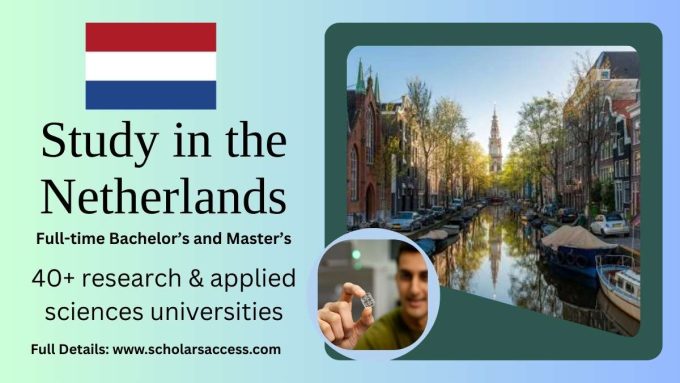
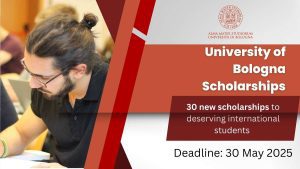
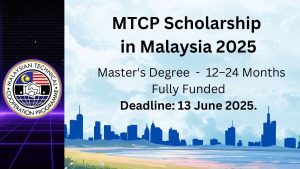


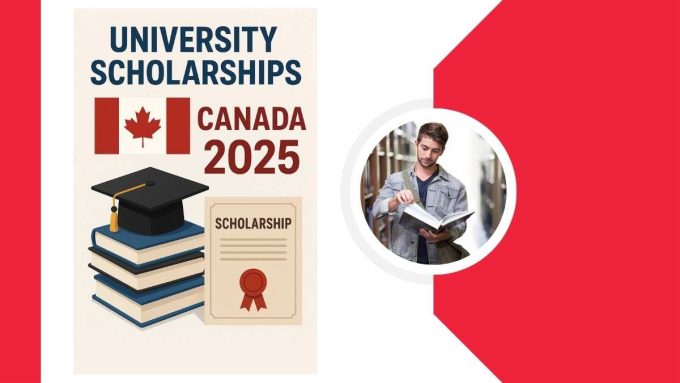
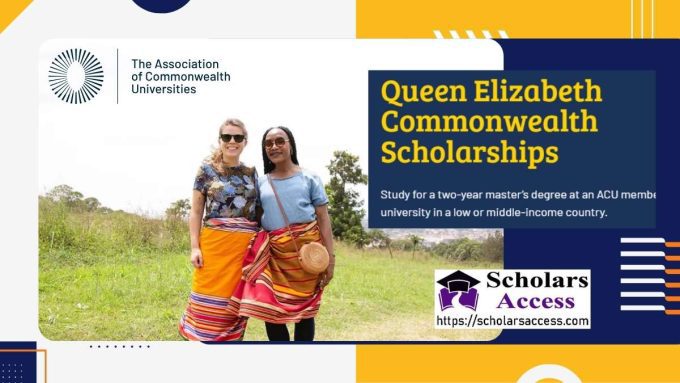

2 Comments